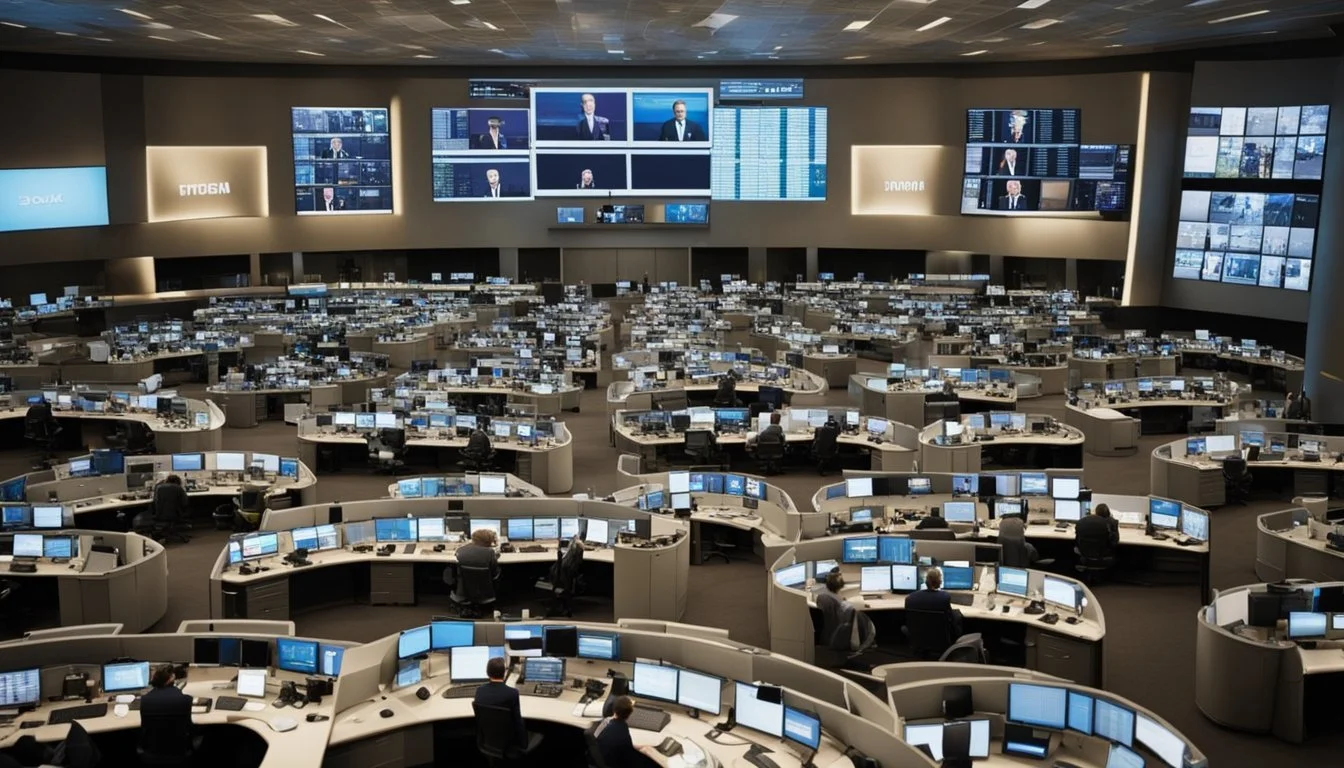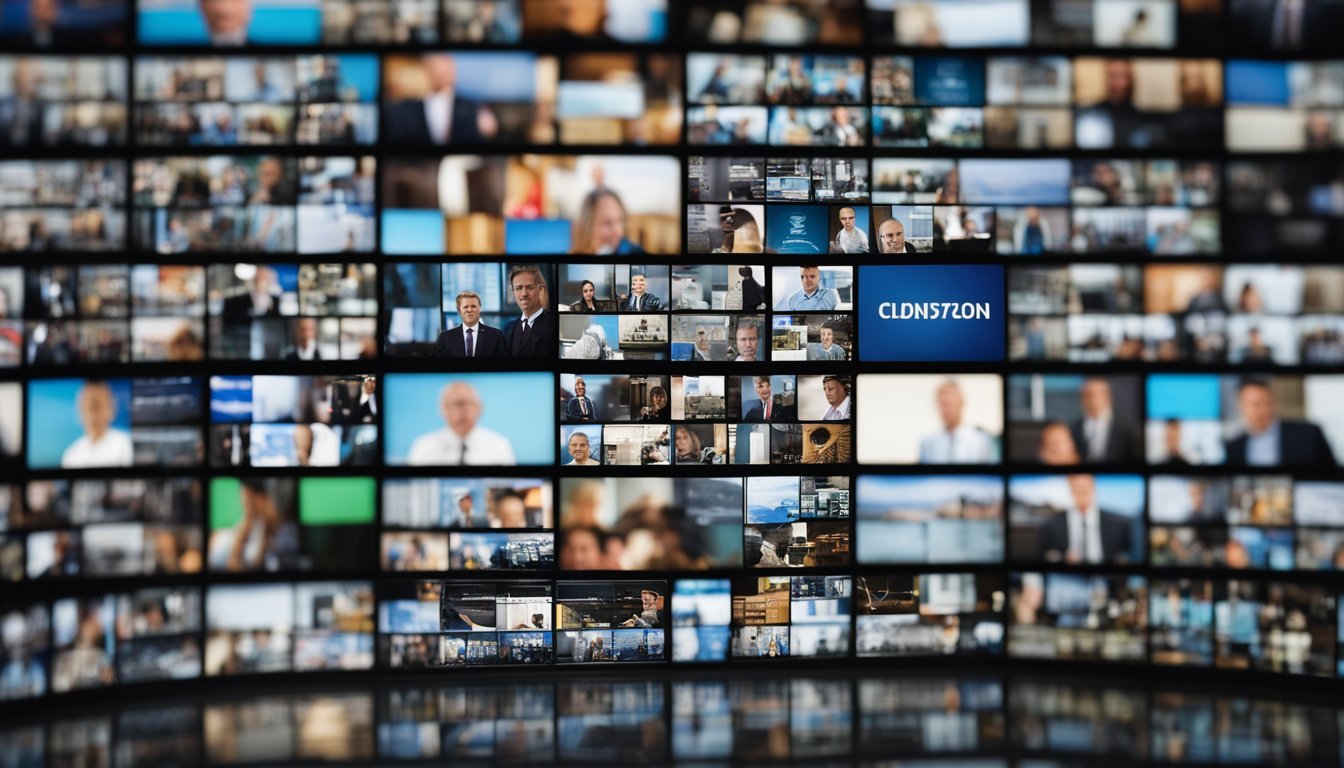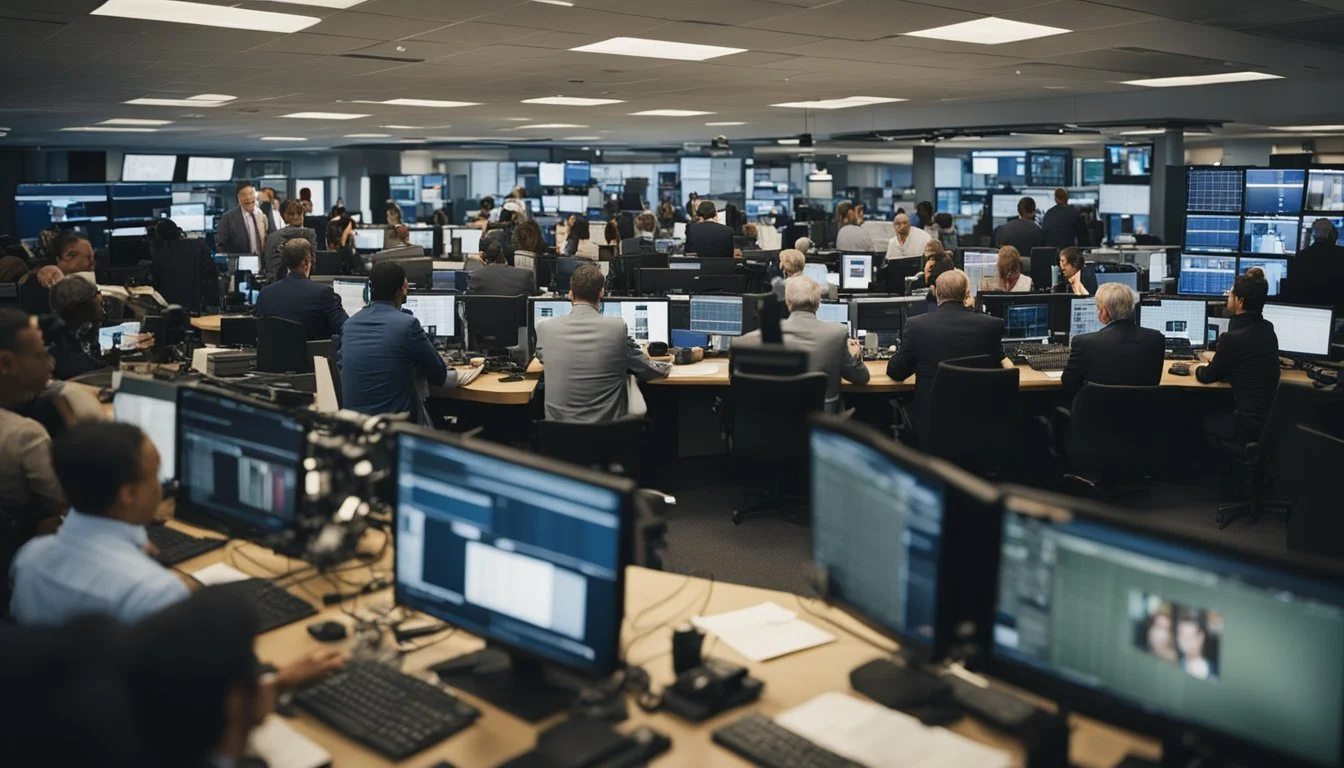6 Films on the Role of Media in Politics
A Deep Dive into Influence and Power
The interaction between media and politics has always been a focal point of societal examination. Films addressing this complex relationship offer insights into how media can shape political landscapes, influence public perception, and even alter the course of history. By exploring various narratives, these films illuminate the power dynamics and ethical dilemmas inherent within the realm of political journalism.
Understanding the portrayal of media in political films is crucial for comprehending the broader implications of media influence on democracy and governance. Whether through the depiction of newsroom dramas or the machinations of political campaigns, these films provide a compelling lens through which audiences can reflect on real-world media practices and their impact on political life.
1) The Post (2017)
"The Post" is a political thriller directed by Steven Spielberg. It showcases the Washington Post's pivotal role in publishing the Pentagon Papers. The film stars Meryl Streep as Katharine Graham and Tom Hanks as Ben Bradlee.
The story focuses on the journalistic integrity and the challenges they faced.
Through gripping performances, the film highlights the power dynamics between the government and the press. It emphasizes the importance of truth and accountability in journalism. The movie serves as a reminder of the critical role media plays in democracy.
"The Post" provides an engaging portrayal of real-life events. It reflects the urgency and determination of journalists committed to uncovering the truth, despite facing significant obstacles.
For more information, visit The Post on Wikipedia.
2) Good Night, and Good Luck (2005)
"Good Night, and Good Luck" is a historical drama directed by George Clooney. The film is set against the backdrop of the early 1950s during the height of McCarthyism in the United States.
It focuses on the real-life conflict between journalist Edward R. Murrow, played by David Strathairn, and Senator Joseph McCarthy. Murrow, a veteran broadcaster for CBS, seeks to expose McCarthy's tactics of fearmongering and baseless accusations.
George Clooney's decision to shoot the film in black and white adds a layer of authenticity. The black-and-white cinematography helps evoke the era, mirroring the television broadcasts of the 1950s.
The film's title is inspired by Murrow's iconic sign-off line, adding a personal touch to the narrative. The story emphasizes the power and responsibility of the media in challenging authority and protecting democratic values.
Murrow's portrayal in the film highlights the ethical dilemmas journalists face when holding those in power accountable. His commitment to the truth and journalistic integrity are central themes that resonate throughout "Good Night, and Good Luck."
More about the film can be found here.
3) All the President's Men (1976)
"All the President's Men" is a 1976 American film that portrays the investigative journalism of Bob Woodward and Carl Bernstein. They were reporters for The Washington Post who uncovered the Watergate scandal. The film is directed by Alan J. Pakula and based on a book by Woodward and Bernstein released in 1974.
The film depicts the meticulous and often arduous process of investigative journalism. It shows how Woodward and Bernstein followed leads, corroborated stories, and managed sources. This eventually led to the uncovering of information that implicated top government officials, contributing to the resignation of President Richard Nixon.
The screenplay, written by William Goldman, is highly praised for its realistic portrayal of the journalistic process. The film stars Robert Redford as Bob Woodward and Dustin Hoffman as Carl Bernstein. Their performances help to highlight the persistent and often risky nature of journalistic investigation.
"All the President's Men" serves as a riveting example of how media plays a crucial role in political accountability. It's an important film for anyone interested in the impact of journalism on politics.
For more information, visit the IMDB page for All the President's Men.
4) Network (1976)
"Network" is an incisive satirical drama directed by Sidney Lumet. The movie depicts a television network that exploits the on-air breakdown of its veteran news anchor, Howard Beale, for profit. Faye Dunaway, William Holden, Peter Finch, and Robert Duvall star in this compelling film which examines the intertwining of media and corporate power.
The movie presents a stark portrayal of the lengths to which networks will go to increase ratings. Howard Beale’s descent into madness becomes a media sensation, and his outbursts are manipulated for viewership gains. This illustrates the often exploitative nature of media enterprises.
Paddy Chayefsky’s screenplay received critical acclaim, capturing an Oscar for its biting critique of television news. "Network" remains relevant today, highlighting enduring concerns over media ethics and the commercialization of news.
For more details on "Network", visit its Wikipedia page.
5) Broadcast News (1987)
Broadcast News, directed by James L. Brooks, is a dramedy that delves into the lives of three characters working in the television news industry. The film stars Holly Hunter, Albert Brooks, and William Hurt, who deliver memorable performances that capture the complexities of newsroom dynamics.
Set in the world of television journalism, it presents a candid look at the ethical dilemmas and personal relationships of those who produce the news. The film portrays the tension between journalistic integrity and the sensationalism that often drives ratings.
One of the film's strengths lies in its realistic depiction of the newsroom environment, highlighting the pressures faced by journalists. It also explores the impact of corporate influence on news content, a topic that remains relevant today.
The film's legacy includes its prescient insights into changes in the media landscape. It is considered a classic for its portrayal of the challenges and comedic moments in the media industry, and it continues to resonate with audiences and critics alike.
For more information on Broadcast News, you can visit the Wikipedia page.
6) Wag the Dog (1997)
"Wag the Dog" is a political satire directed by Barry Levinson. The film stars Robert De Niro and Dustin Hoffman in pivotal roles. It presents a fictional scenario where a Washington, D.C. spin doctor and a Hollywood producer collaborate to fabricate a war to divert public attention from a presidential scandal.
The film delves into the powerful influence of media in shaping public perception. It underscores how media manipulation can obscure facts and shift focus away from pressing issues. In this narrative, the audience witnesses the extent to which media can be used as a tool for political gain.
"Wag the Dog" is notable for its timely release, coming out soon before real-life political scandals dominated headlines. The film's premise emphasizes the idea that reality can often be constructed and packaged by those in power, making it a significant commentary on media's role in politics.
The collaboration between the political consultant and the Hollywood producer in the film highlights the intersection of politics and entertainment. This serves as a critical reminder of how media narratives can be created and controlled.
For more information about "Wag the Dog," visit Wikipedia.
The Influence of Media on Public Opinion
Media plays a crucial role in shaping public perception and opinion. This manifests through mechanisms such as framing and agenda-setting, as well as the influences exerted by media ownership and inherent biases.
Framing and Agenda-Setting
Framing refers to how media outlets present and structure information. By highlighting specific aspects of a story, the media can influence how the public interprets events.
Agenda-setting, meanwhile, involves the media dictating what topics are deemed important. Studies have shown that when the media emphasizes certain issues, the public is more likely to perceive those issues as significant. This can directly shape political priorities and public discourse.
Media Ownership and Bias
Ownership of media outlets often influences their content. Large corporations or political figures can skew reporting to favor specific viewpoints. This bias can filter the information available to the public, shaping their opinions in subtle or overt ways.
Bias can also arise from journalistic practices. Selection criteria for news stories can mean some topics receive more coverage than others, thereby affecting public perception and political outcomes.
Historical Context of Media in Politics
Media has played a pivotal role in shaping political landscapes, ranging from influencing public opinion to directly affecting election outcomes. Two significant aspects are key moments in history and the evolution of media technologies.
Key Moments and Their Impact
Early 20th-century cinema, particularly in Hollywood, began demonstrating the powerful connection between film and politics. Political propaganda films in the 1930s and 1940s highlighted this tool's strategic use.
The advent of television in the 1950s marked another turning point. The 1960 US Presidential debates between Kennedy and Nixon were groundbreaking, emphasizing the visual impact of television.
In the late 20th and early 21st centuries, internet and social media became crucial political battlegrounds, facilitating rapid information dissemination and grassroots mobilization.
Evolution of Media Technologies
Initially, newspapers and radio were the primary sources of political information, shaping public opinion through editorials and news reports. With the rise of television, political communication grew more visual.
The internet transformed media consumption, enabling real-time updates and interactive platforms. Social media platforms like Facebook and Twitter revolutionized political engagement, allowing direct interaction between politicians and the public.
These advancements have fundamentally altered how media influences politics, making information more accessible but also posing challenges such as misinformation and echo chambers.
Case Studies and Analysis
The role of media in politics can be illuminated through case studies of both successful campaigns and notable failures and controversies. These examples offer insights into how media can shape political narratives and influence public perception.
Successful Media Campaigns
"Selma" (2014): Ava DuVernay's film about Martin Luther King Jr.'s march for voting rights is a powerful example of how media can inspire and mobilize political action. Its portrayal of nonviolent protest highlighted the importance of civil rights and contributed to national discussions about race and equality.
Obama's 2008 Presidential Campaign: Utilizing social media and innovative online strategies, Obama's campaign effectively engaged younger voters. This modern approach demonstrated the potential of digital platforms for political outreach and personalized voter engagement.
"The Social Network" (2010): Though not a political film per se, its depiction of Facebook's rise underscored the platform's growing influence on political communication. The film highlighted concerns about data privacy and the power of social media in shaping public discourse.
Failures and Controversies
"The Interview" (2014): This comedy film about journalists involved in a plot to assassinate North Korea's leader led to severe international tensions and a cyberattack on Sony Pictures. The controversy raised questions about media’s role in international relations and censorship.
Brexit Campaign (2016): Media coverage and campaign strategies during the Brexit referendum were criticized for spreading misinformation and fostering divisive narratives. This highlighted potential pitfalls of media influence in political events, showing how biased reporting can skew public opinion.
"Green Book" (2018): While winning awards and acclaim, the film faced criticism for its portrayal of race relations and historical accuracy. Critics argued it simplified complex issues and misrepresented real-life figures, sparking debates about media responsibility in representing history and politics accurately.
These case studies offer valuable insights into the impacts of media on political landscapes, showcasing both successful uses and significant missteps.



